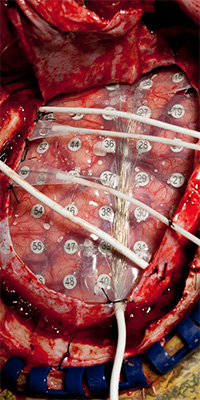
University of Utah bioengineers discovered our understanding of language may depend more heavily on vision than previously thought: under the right conditions, what you see can override what you hear. These findings suggest artificial hearing devices and speech-recognition software could benefit from a camera, not just a microphone.
“For the first time, we were able to link the auditory signal in the brain to what a person said they heard when what they actually heard was something different. We found vision is influencing the hearing part of the brain to change your perception of reality – and you can’t turn off the illusion,” says the new study’s first author, Elliot Smith, a bioengineering and neuroscience graduate student at the University of Utah. “People think there is this tight coupling between physical phenomena in the world around us and what we experience subjectively, and that is not the case.”
The brain considers both sight and sound when processing speech. However, if the two are slightly different, visual cues dominate sound. This phenomenon is named the McGurk effect for Scottish cognitive psychologist Harry McGurk, who pioneered studies on the link between hearing and vision in speech perception in the 1970s. The McGurk effect has been observed for decades. However, its origin has been elusive.